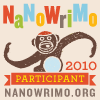I am writing this as a concerned parent. I am greatly concerned about the number of book challenges and out-right bans that occur every year in the United States. Concerned Parents are the greatest challengers to books in our country. Which is why concerned parents (and teachers, readers, librarians and average citizens, etc.) need to Speak Loudly against censorship and keep intellectual freedom strong in this, The Land of the Free.
Fortunately, we do live in a country which protects Freedom of Speech, so there are no books officially banned by our government. Not that they don’t try. But, authors are not put on house arrest, threatened with imprisonment and death, or banished from our country because of the words they have written. We truly are lucky. I wish I did not have to remind people that there are countries in which people are actually dying for the right to learn and read. Why would we want to threaten that right here?
I do understand why parents are concerned about what their children are reading, but I do not support the removal of books from a library, school system or bookstore. Of course, the obvious statement is, as above, if you don’t like it, then don’t read it. There are plenty of books available that you will like. But what about the required reading lists at school, which is what has led to the recent controversy in Missouri over SPEAK by Laurie Halse Anderson and in other states for other books? Should they be allowed to be challenged? If a teacher deems a book worthy of educational analysis shouldn’t students have them available to be read? If peers are passing around a book or discussing it because of a topic that is relevant to their lives, should parents or teachers stop them? I am not talking about passing around a Penthouse in the locker room, which-guess what-happens anyway. I am talking about books for teens, about teens and about themes and subjects which are important to teens. Not to mention that the books assigned do have educational value to them including literary structure and cultural information. Contemporary novels deserve to be read and studied just as much as books deemed “classics” which often equates to “old” in the minds of the young.
When I met my son’s freshman English teacher, she showed us copies of the books that they would be reading. I was thrilled that SPEAK was one of them. I read it earlier in the summer and watched the Lifetime film based on it (starring a then-unknown Kristen Stewart). I cried, I laughed, I learned. It has all of the good stuff a book should have. Plus, it had the most redeeming factor, in my opinion, of being accessible to the modern teen. If it is new to you, then to summarize: a freshman girl experiences date-rape and plunges into a terrifying depression in which she essentially experiences Selective Mutism. The absolutely most important lesson that readers can get from this is to NOT be afraid to talk about problems, to use their voice and to tell someone when they are violated or in danger and need help. A ban of this specific book will teach the exact opposite.
I think the case with SPEAK has proven that when you tell a reader that they cannot or should not read a book, then their curiosity is going to be greater than ever and book sales will rise. Dr. Scroggins severely underestimated both the power of the Pen and of the Web. In this Internet era, there are more ways to get your eyes on a book than ever. Even if he achieves his goal (and apparently Vonnegut’s Slaughterhouse-5 did get cut after his complaints) he has managed to promote these books more than he will ever be able to hide them. Authors, teachers and readers around the world have rallied to support these books and others. But that is the result of a challenge/ban. What leads to the challenge is what bothers me the most. The desire to limit information, to stop people from reading and learning, is appalling. This is what dictators do, this is what terrorists hope to accomplish. We cannot attack our own Constitutional freedoms by fighting amongst ourselves. When adults bicker over books, children do not learn how to rationally debate. When governors suggest books be removed from a public library, then we are in serious trouble. When anyone is told that they cannot read any book, then we face more limitations on our freedom.









5 comments
Comments feed for this article
October 2, 2010 at 1:25 pm
Digital Dame
It amazes me that we are still dealing with this issue. It should be cut-n-dried, no bans on books. Why is this even a question in this country? Burying our heads in the sand when it comes to disturbing topics like date-rape will not make it stop happening. It was happening long before anyone thought to write about it. It’s so stupid, stupid, stupid to try to ban books.
October 3, 2010 at 8:42 am
Rustam
Very Nice 🙂
I will be your subscriber.
October 3, 2010 at 1:08 pm
janflora
Thank you @rustam 🙂
DD- I agree, It always bothers me that the US has so many cases of censorship when we support personal liberties and freedom of speech/press. Very confusing.
October 13, 2010 at 7:35 am
C. Lee McKenzie
Imagine all the great stories and beautiful characters we’d never have read about if we’d listened to those who would dictate what is “bad.”
October 13, 2010 at 11:35 am
janflora
I know! I always say that banned books are some of my favorite reads 🙂 Thank you for visiting!